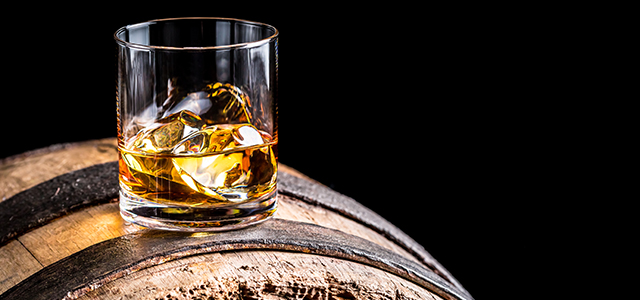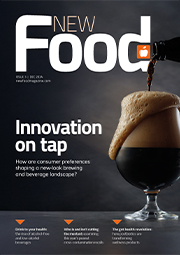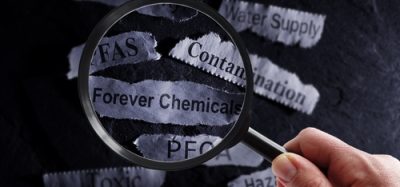Chemical profiling and differential analysis of whiskies using Q Exactive™ GC Orbitrap™ GC-MS/MS
- Like
- Digg
- Del
- Tumblr
- VKontakte
- Buffer
- Love This
- Odnoklassniki
- Meneame
- Blogger
- Amazon
- Yahoo Mail
- Gmail
- AOL
- Newsvine
- HackerNews
- Evernote
- MySpace
- Mail.ru
- Viadeo
- Line
- Comments
- Yummly
- SMS
- Viber
- Telegram
- Subscribe
- Skype
- Facebook Messenger
- Kakao
- LiveJournal
- Yammer
- Edgar
- Fintel
- Mix
- Instapaper
- Copy Link


About this webinar
Whisky is a premium product produced using long established methods. The complex processes employed result in a final product that has unique characteristics and has high commercial value. As such, it is essential that whisky producers are able to obtain an accurate and comprehensive chemical profile which is characteristic to their individual product. This information can then be used to identify adulterated or counterfeit products and enable action to be taken, with confidence, to protect the product and brand.
Gas chromatography-mass spectrometry (GC-MS) is routinely used for chemical profiling applications due to its chromatographic resolution, reproducibility, peak capacity, and convenient spectral libraries. GC provides excellent chromatographic separation capability to enable a comprehensive chemical signature of a sample to be obtained. The recent introduction of high resolution, accurate mass (HRAM) Orbitrap Technology coupled to Gas Chromatography (GC) brings a new level of performance and flexibility in GC-MS full scan acquisition. This technology in combination with sophisticated software tools, that enable fast data processing and statistical analysis, has the potential to provide a complete workflow solution.
In this webinar we will highlight a proof of concept study using the Q Exactive GC in the characterisation and profiling of extracts of whisky samples. The importance of parameters such as high resolving power, excellent mass accuracy, wide linear dynamic range and automated deconvolution of HRAM spectra for the analysis of chemical components present at high and low concentrations will be discussed. The long term objective is to use such characterization data to identify counterfeit products and for quality control to ensure the consistency of products.
Attendees will learn how to:
- Use high resolution and high mass accuracy to investigate the chemical profile of complex samples.
- Apply a complete untargeted workflow using a novel Thermo Scientific™ Orbitrap™ MS-based GC and statistical software to detect and identify chemical markers.
- Learn about the current technology and software tools available for chemical profiling to potentially detect food fraud.
Keynote speaker


Senior Applications Specialist
Thermo Fisher Scientific
Dominic is a Senior Applications Specialist Thermo Fisher Scientific, Runcorn, UK. Dominic is an experienced analytical chemist and mass spectrometrist with more than 17 years of experience using state-of-the-art analytical systems. Dominic has worked in both a regulatory and industrial environment gaining strong hands-on experience with GC-MS and LC-MS systems used to investigate a variety of chemicals in food, biological and environmental samples.
The majority of his experience comes from ten years working at the fomer Food & Environment Research Agency as an Analytical Chemist focussing on method development using LC-MS and GC-MS systems for Food contaminants. Dominic is currently working primarily with GC-HRMS technology to develop and implement analytical methodologies for the detection and quantification of trace chemicals.
Supported by:
![]()
![]()
Thermo Fisher Scientific has advanced instrumentation that can help in the area of food adulteration to determine the known and unknown contaminants of the food and beverage product. Their state of the art products help labs check for the adulteration of edible oils to fruit juices and many other products. Their instruments help government agencies and contract laboratories determine if a particular product has been adulterated.
More in this webinar series…
Use of stable isotope analysis in commercial food authenticity testing
Date: 29 March 2017 | Time: 15.00 BST
Speaker: Dr. David Psomiadis, Laboratory Manager, Imprint Analytics GmbH
Can we perform gelatin speciation and adulteration using bioinformatics, proteomics and high resolution mass spectrometry?
Date: 27 April 2017 | Time: 15.00 BST
Speaker: Dr Francis Beaudry, University of Montreal, Canada
Charged aerosol detection for LC analysis of triglycerides: A novel tool for extra-virgin olive oil characterisation
Date: 9 May 2017 | Time: 15.00 BST
Speaker: Professor Lanfranco Conte, Dept. of Agri-Food, Environmental and Animal Sciences, University of Udine
When honey is not all honey and other tales of food adulteration: Ion chromatography as a tool for detecting food fraud
Date: 7 June 2017 | Time: 15.00 BST
Speaker: Dr. Jeff Rohrer, Thermo Fisher Scientific
The rest of this content is restricted - login or subscribe free to access


Why subscribe? Join our growing community of thousands of industry professionals and gain access to:
- bi-monthly issues in print and/or digital format
- case studies, whitepapers, webinars and industry-leading content
- breaking news and features
- our extensive online archive of thousands of articles and years of past issues
- ...And it's all free!
Click here to Subscribe today Login here









